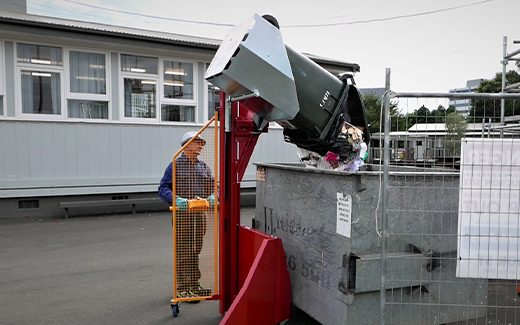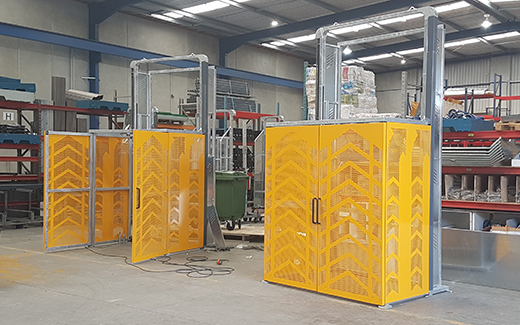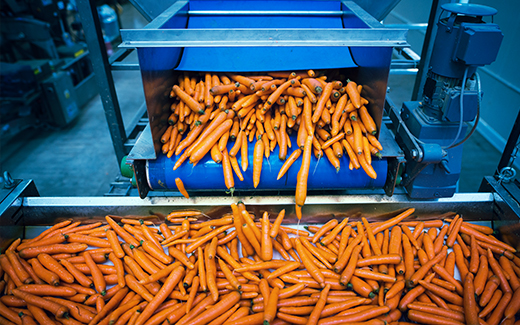The sheer volume of waste produced by healthcare facilities, encompassing both hazardous and non-hazardous materials, is immense. In the UK, the NHS is responsible for over 600,000 tons of waste every year, with a large proportion being non-hazardous and the remainder comprising hazardous waste such as sharps, chemicals, and pharma residues.
To prevent infection spread, minimise environmental harm, and secure the well-being of healthcare professionals and patients, proficient management of this waste is imperative. In this blog post, we delve into critical strategies for bin lifting in UK hospital waste management and explore industry best practices, regulations, and guidelines.
Common challenges in the UK’s healthcare waste management
Managing waste in the healthcare sector comes with unique difficulties such as segregation, handling and transportation, and disposal. Healthcare facilities must segregate waste to avoid cross-contamination and to ensure the right disposal methods are used correctly.
The handling and transportation of waste materials represent another hurdle. They demand specific equipment and trained personnel to mitigate risks to healthcare workers and the environment. Furthermore, healthcare facilities must navigate a labyrinth of rigorous regulations when disposing of waste materials, which is complex and consumes valuable time.
Top bin lifting tips for managing waste in the UK hospitals
Despite the challenges, it is essential to remove waste in a safe, hygienic, and environmentally friendly way. Bin lifting is a crucial part of this process. Here is how to leverage it:
1. Choose the correct bin lifters
The use of appropriate bin-lifting equipment can make waste management more efficient. This might include bin lifters or trolleys designed to handle the weight and volume of waste hospitals generate. Such equipment reduces the potential for injuries and strain associated with manual lifting and enhances the overall efficiency of waste management tasks.
2. Implement proper lifting training
Everyone involved in bin lifting should be properly trained to handle the different types of waste. They should understand the risks associated with each type of waste and know the correct procedures for handling and disposing of them. This includes training on safely lifting and moving waste bins, reducing the chance of mishaps while removing waste.
3. Prioritise strategic bin placement
Waste bins should be situated in readily accessible locations to minimise the distance healthcare workers must travel for waste disposal. Strategic bin placement can also lessen the likelihood of accidents and injuries.
4. Maintain equipment regularly
All waste management equipment within healthcare facilities should undergo regular maintenance and servicing. This proactive approach prevents equipment breakdowns.
5. Adopt colour-coded bins
Different types of waste (e.g., general, clinical, hazardous) require different handling and disposal methods, and using colour-coded bins can facilitate that. This system minimises the risk of cross-contamination and bolsters the efficiency of waste management operations.
6. Set up a designated waste management team
Healthcare facilities should have a designated waste management team overseeing the entire waste collection, lifting, and disposal process. This team can also train other staff members and ensure compliance with all relevant regulations.
7. Implement emergency procedures
Have clear processes in place for any accidents or spills during bin lifting and waste removal. Staff should be trained in these procedures and have access to the necessary equipment to deal with such situations promptly and safely.
Regulations and guidelines for healthcare waste management in the UK
Healthcare waste management in the country is subject to numerous regulations, overseen by various agencies such as the Environment Agency, Health and Safety Executive (HSE), and the Department of Health and Social Care.
Healthcare facilities must adhere to strict rules and guidelines for waste disposal, including the Safe Management of Healthcare Waste Guidance, which details the best practices for handling healthcare waste.
The guidance offers advice on segregating, handling, transporting, and disposing of healthcare waste materials. Compliance with this guidance is mandatory for healthcare facilities, which must also secure the appropriate permits and licences to dispose of hazardous waste materials.
Case studies of successful healthcare waste management
Many UK hospitals have effectively implemented healthcare waste management strategies, demonstrating impressive results.
One such example is the University Hospital of North Tees, which reduced its waste by 60% by introducing a recycling program. This initiative emphasised the segregation of waste materials, the application of mechanical aids for waste handling, and the education of healthcare workers on correct waste management practices.
Similarly, the Royal Liverpool and Broadgreen University Hospitals NHS Trust achieved a total reduction of 43% by implementing a waste reduction program. This initiative prioritised segregating waste materials, using colour-coded bins for easier identification and management, and educating healthcare staff on proper waste management protocols.
Over to you
Effective healthcare waste management fosters a safe and healthy environment for patients, medical staff, and the wider community. Healthcare institutions should follow rigorous regulations and guidelines concerning waste disposal, which include appropriate segregation, handling, transportation, and disposal of waste materials.
They can enhance their waste management operations by embracing best practices, employing mechanical aids, and regularly maintaining equipment.
If you are searching for an intelligent lifting solution, your search ends here with Simpro. As the sole distributors of their extensive range in the UK and throughout Europe, we invite you to reach out to us for further information on Simpro.




